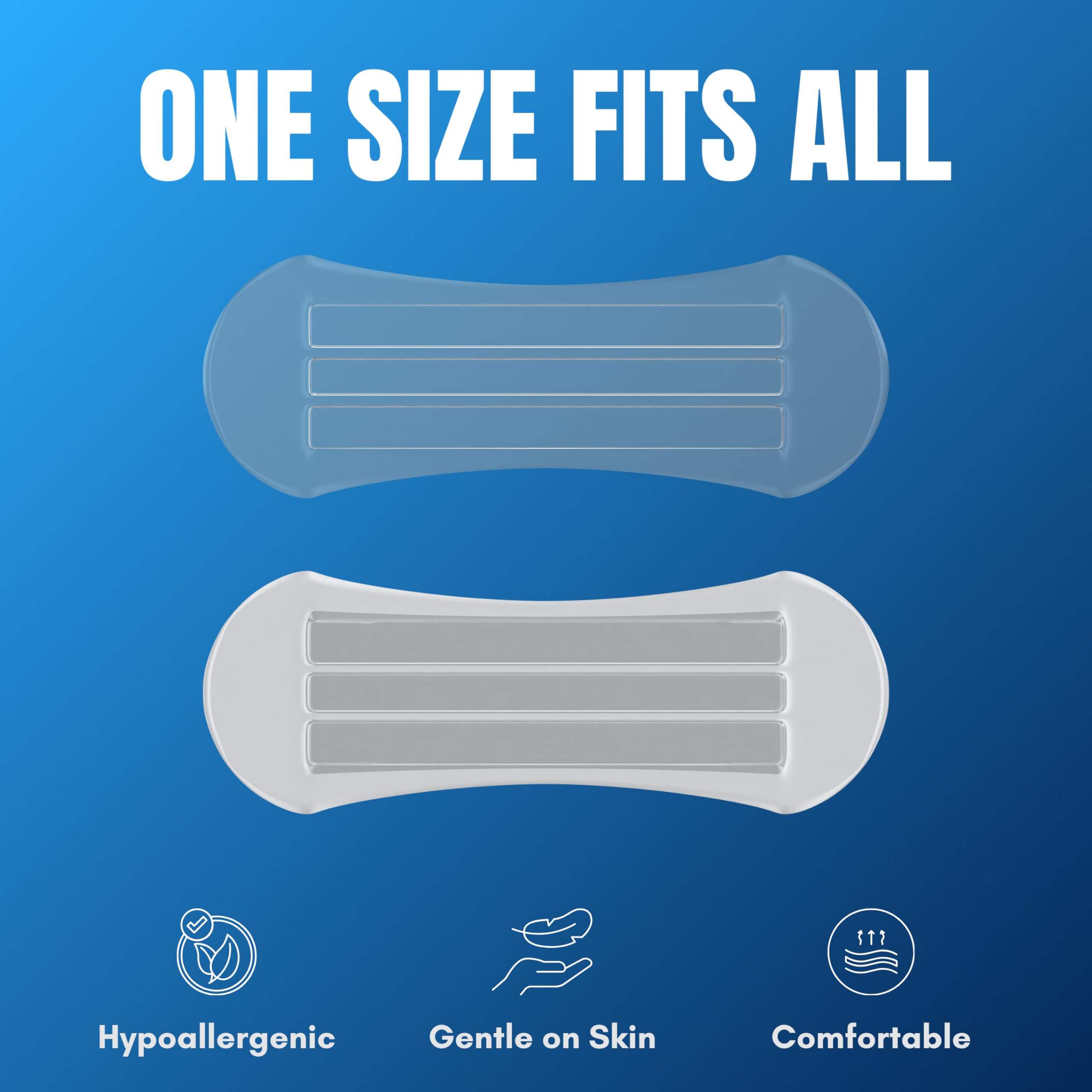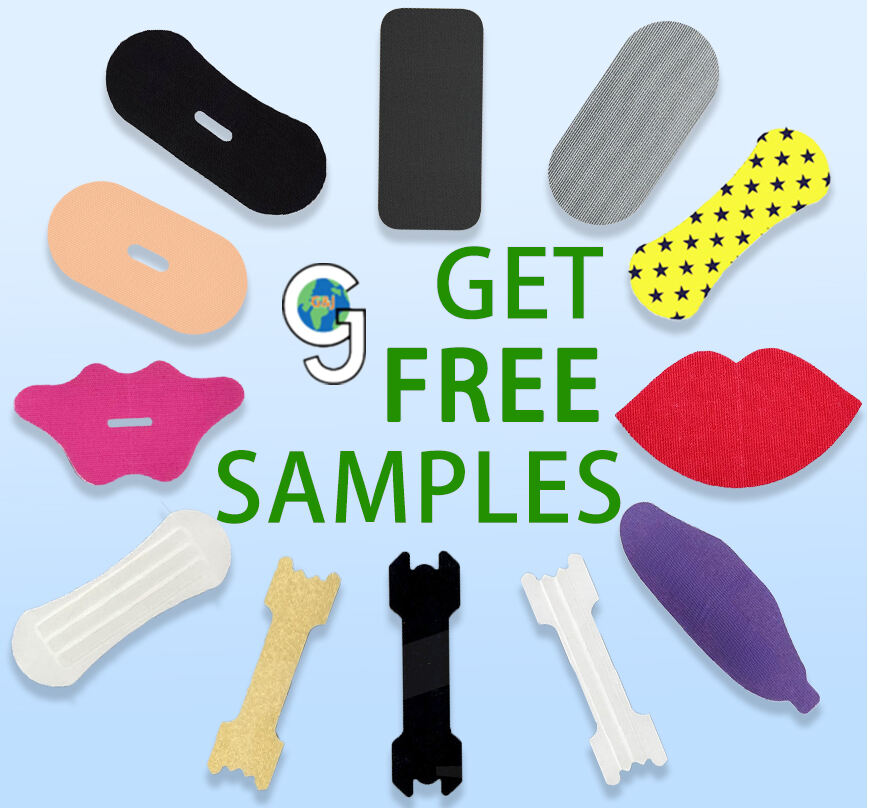How to Find the Best Custom Nasal Strip Manufacturer?
Jul.15.2025
How to Find the Best Custom Nasal Strip Manufacturer
Custom nasal strips are in high demand for their ability to address specific needs—whether for athletes, people with allergies, or medical use. But finding the right manufacturer to create your custom nasal strips can be tricky. The best manufacturer will balance quality, customization options, reliability, and cost. Let’s break down the key steps to find the best custom nasal strip manufacturer for your project.
Check for Certifications and Compliance
Quality and safety are non-negotiable when it comes to nasal strips, as they come into direct contact with the skin. A reputable manufacturer must meet strict industry standards.
- Regulatory certifications: Look for manufacturers with certifications like FDA (U.S.), CE (EU), or ISO 13485 (medical device quality management). These certifications ensure the nasal strips are made in clean facilities, use safe materials, and undergo proper testing. For example, an FDA-registered manufacturer follows guidelines to avoid skin irritation, ensuring the adhesive in the nasal strip is hypoallergenic.
- Compliance with material standards: The materials used in nasal strips—adhesive, backing, and any drug components (like decongestants)—must meet safety standards. Ask the manufacturer for material safety data sheets (MSDS) to confirm that the adhesive is skin-friendly and the materials are free from harmful chemicals.
- Traceability: A good manufacturer can track every batch of nasal strips from raw materials to finished products. This traceability helps identify issues if they arise, which is critical for recalls or quality checks.
Certifications and compliance show that the manufacturer takes quality seriously, reducing the risk of defective or unsafe nasal strips.
Evaluate Customization Capabilities
The whole point of choosing a custom nasal strip manufacturer is to get products tailored to your needs. The best manufacturers offer flexible customization options.
- Design flexibility: Can they adjust the size (length, width) of the nasal strip? For example, you might need smaller strips for children or extra-wide strips for larger nostrils. A good manufacturer will work with your design specs, even for unique shapes (like curved edges for better fit).
- Material choices: Nasal strips can use different adhesives (gentle for sensitive skin, strong for active use) or backing materials (breathable, water-resistant). Ask if they offer options like hypoallergenic adhesives, latex-free materials, or eco-friendly backings.
- Branding and packaging: Custom packaging with your logo, instructions, or colors is important for marketing. Check if the manufacturer can print your brand on the nasal strip itself or design custom boxes, sachets, or bulk packaging.
- Formula customization: If your nasal strip includes added ingredients (like menthol for a cooling effect), ensure the manufacturer can integrate these safely and effectively. They should have experience with formulating such additions without compromising the strip’s stickiness or comfort.
A manufacturer with strong customization capabilities will turn your vision into a functional, market-ready nasal strip.
Assess Quality Control and Testing
Even with customization, quality is key. A reliable manufacturer will have strict quality control (QC) processes to ensure every nasal strip meets your standards.
-
In-house testing: Ask what tests they perform on nasal strips. Common tests include:
- Adhesion strength: Ensuring the strip sticks well but doesn’t irritate skin when removed.
- Skin safety: Testing for allergic reactions or irritation (using methods like patch tests).
- Performance: Checking if the strip effectively opens nasal passages (e.g., measuring airflow improvement).
- Batch consistency: Samples might look great, but you need every batch to be the same. The manufacturer should have QC checks for each production run, with records you can review.
- Third-party audits: Some manufacturers let independent labs test their nasal strips. This adds an extra layer of trust, as external experts verify quality.
Quality control ensures your custom nasal strips work as intended—no weak adhesion, no skin irritation, and consistent performance.

Review Production Capacity and Lead Times
Whether you need small batches or large-scale orders, the manufacturer must deliver on time.
- Production scale: Can they handle your order size? A manufacturer with small production lines might struggle with large orders (100,000+ strips), while one focused on mass production might ignore small batches (1,000–10,000 strips). Choose one that matches your volume needs.
- Lead times: How long does it take to produce a custom order? Ask for a clear timeline, including design approval, sample production, and full manufacturing. Avoid manufacturers with vague deadlines—delays can hurt your launch or restock plans.
- Supply chain stability: Do they have reliable sources for raw materials (adhesives, backing paper)? A manufacturer with a weak supply chain might face delays if materials run out. Ask about their backup suppliers to ensure consistency.
A manufacturer with reliable production capacity and on-time delivery will keep your business running smoothly.
Check Customer Reviews and References
Past clients’ experiences are a good indicator of a manufacturer’s reliability.
- Online reviews and ratings: Look for feedback on platforms like Google, industry forums, or B2B sites (e.g., Alibaba). Pay attention to comments about quality, communication, and adherence to deadlines.
-
Client references: Ask the manufacturer for contact info of past clients (preferably in your industry). Reach out to these clients to ask:
- Did the manufacturer meet customization specs?
- Were there quality issues, and how were they resolved?
- Was communication clear and responsive?
- Industry reputation: Manufacturers with years of experience in nasal strips (not just general medical supplies) are more likely to understand the nuances of nasal strip production. Look for those with a track record in the healthcare, wellness, or sports industries.
Positive reviews and strong references reduce the risk of partnering with a manufacturer that cuts corners.
Compare Costs and Minimum Order Quantities (MOQ)
Cost is a key factor, but it shouldn’t come at the expense of quality.
- Transparent pricing: The manufacturer should provide a detailed quote, including costs for customization (design, materials, packaging) and shipping. Avoid hidden fees (e.g., for samples or rush orders).
- MOQ flexibility: Minimum order quantities vary—some manufacturers require 10,000 strips, others 50,000. If you’re a small business, look for a manufacturer with lower MOQs (e.g., 5,000) to avoid overstocking.
- Bulk discounts: If you plan to scale, ask if they offer discounts for larger orders. A good manufacturer will reward long-term partnerships with better pricing.
Balance cost with quality—cheaper options might use poor adhesives or skip testing, hurting your brand in the long run.
Evaluate Communication and Customer Service
Working with a manufacturer requires clear communication, especially for custom orders.
- Responsiveness: Do they reply to emails or calls promptly? Delayed responses can slow down design approvals or problem-solving.
- English proficiency: If you’re working with an international manufacturer, ensure their team speaks clear English to avoid misunderstandings about specs or deadlines.
- Support during the process: Will they help refine your design if needed? For example, suggesting a better adhesive type for your target audience (e.g., sensitive skin) shows they care about your success.
- Post-sales support: What happens if you receive a defective batch? A reliable manufacturer will offer replacements or refunds and fix the issue quickly.
Good communication ensures your custom nasal strip project stays on track and meets your expectations.
FAQ
What certifications should a reputable nasal strip manufacturer have?
Look for ISO 13485 (medical device quality), FDA registration (for U.S. markets), and CE marking (for EU markets). These ensure compliance with safety and quality standards.
How long does it take to produce custom nasal strips?
Typically 4–8 weeks, depending on customization complexity and order size. Simple designs with standard materials may take 4 weeks, while complex formulas or large orders can take 8 weeks.
Can a manufacturer help with nasal strip design if I don’t have specs?
Yes, many experienced manufacturers offer design support. They can suggest sizes, materials, or shapes based on your target audience (e.g., athletes, children) to optimize performance.
What’s the average cost of custom nasal strips?
Costs range from $0.05 to $0.20 per strip, depending on materials, customization, and order size. Larger orders or basic designs are cheaper; premium materials or complex packaging cost more.
How can I verify a manufacturer’s quality before placing a large order?
Ask for samples first. Test them for adhesion, comfort, and performance. You can also request a small trial order (if MOQs allow) to check batch consistency before scaling up.



